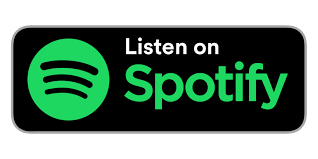In this conversation, Annabel Short talks with Christiaan (Chrik) Poortman and Maria da Graça Prado of CoST - the Infrastructure Transparency Initiative. CoST uses an approach of multi-stakeholder working, disclosure, assurance and social accountability to reduce risks of corruption in public infrastructure.
An estimated 10-30% of investment in infrastructure – projects such as roads, bridges, ports schools, and hospitals – is lost through corruption and mismanagement. Corruption does not only have financial implications. It also deepens inequality, and siphons funding away from essential government services. It leads to the construction of faulty projects that can put people’s lives at risk, and it can even topple governments, as happened as a result of the Odebrecht scandal (the bribery case in which the Brazilian conglomerate paid US$788 million in bribes, across 12 countries).
Chrik and Maria share the challenges they face in this work, and what motivates them. They describe the specific ways that effective community engagement is key to reducing corruption and building sustainable infrastructure, and the importance of local and investigative media. They provide insights on the challenges that arise in contexts of crisis and rapid-response such as the COVID-19 pandemic, and the need for deep ongoing anti-corruption work over time. This will be all the more important as many governments scale up their infrastructure investments to rebuild their economies.
Stream above, or you can listen on Apple, Spotify, Google, Amazon, YouTube or your favourite podcast player
For additional information, see the CoST website, and:
-
CoST Covid-19 Response: “A public, open and ongoing record of innovative good practice”
-
Materials on gender in infrastructure (barriers, strategies) in Thailand and Uganda
-
Related: Global Witness and Transparency International EU make the case for the EU to include anti-corruption as part of companies’ human rights and environmental due diligence obligations
Chrik Poortman has chaired the CoST Board since 2011. In addition to his role with CoST, he is Senior Adviser at Transparency International, where he was Director of Global Programmes for the International Secretariat until 2010. Prior to TI, Chrik worked for the World Bank in many regions.
Maria da Graça Prado is CoST’s Senior Policy & Research Adviser. She is a legal professional whose experience has focused on construction and infrastructure, and has advised on contract management, compliance and dispute resolution.
































The perception of ‘value’ needs to change if the World Bank’s mission is to succeed
Last week we attended the Spring Meetings of the World Bank and International Monetary Fund (IMF) in Washington, D.C. The annual IMF-World Bank meetings bring together finance ministers and central bankers from all regions as a platform for official...
26 April 2024 | Commentary
Commentary by Vasuki Shastry, Author, ESG/Strategic Communications Expert; International Advisory Council, IHRB Haley St. Dennis, Head of Just Transitions, IHRB